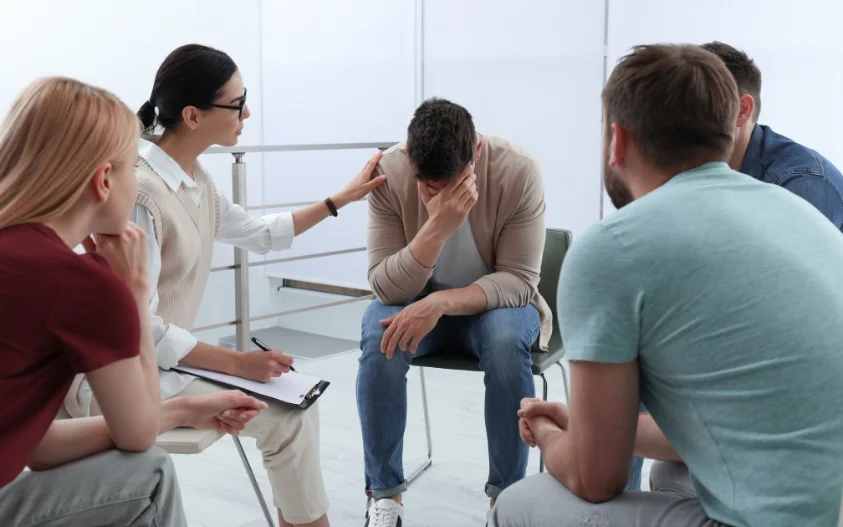24/7 Helpline:
(866) 899-221924/7 Helpline:
(866) 899-2219
Learn more about Individual Therapy centers in Morgan County
Individual Therapy in Other Counties

Other Insurance Options

Regence

Absolute Total Care

UMR

Amerigroup

Aetna

American Behavioral

Health Choice

MHNNet Behavioral Health

Group Health Incorporated

Oxford

Private insurance

Evernorth

BlueCross

Ambetter

Health Partners

Medical Mutual of Ohio

WellCare Health Plans

Kaiser Permanente

Magellan

GEHA

Eastridge Health Systems
Eastridge Health Systems is a private rehab located in Berkeley Springs, West Virginia. Eastridge He...













